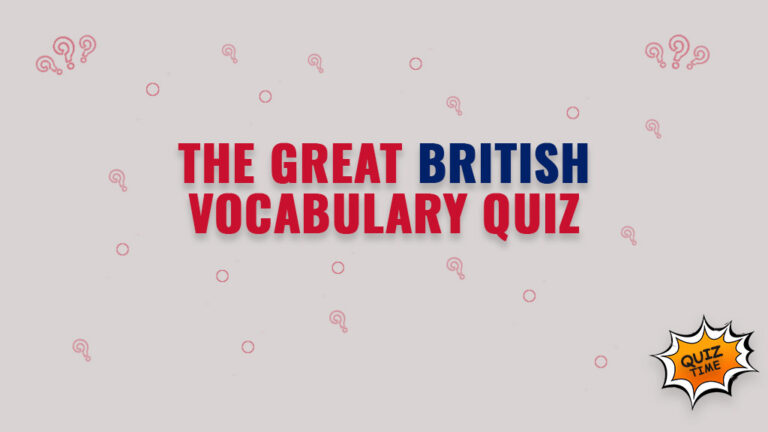❤️It's Trivia, but Sweeter❤️
Can You Choose the Right Word? It’s Tricky!

Language is an essential tool for communication, and the ability to select the right word in a given context is a skill that can significantly improve both spoken and written expression. The challenge of choosing the correct word is not just about knowing its definition, but understanding its nuances, connotations, and how it fits into a sentence. Whether you are writing an essay, delivering a speech, or simply engaging in a conversation, selecting the appropriate word ensures clarity, precision, and effectiveness in communication.
One of the most critical aspects of vocabulary mastery is distinguishing between words that are similar in meaning but differ in usage, tone, or intensity. Many words are easy to confuse, especially when they appear to be synonyms on the surface. For example, words like “desolate” and “empty” might seem interchangeable at first glance, but they convey different emotions and imagery. “Desolate” carries a sense of bleakness and abandonment, while “empty” simply refers to the lack of something. Understanding these subtle differences can elevate the quality of writing and prevent miscommunication.
Equally important is the ability to recognize the emotional weight of certain words. Words like “melancholy” and “sadness” both describe feelings of unhappiness, but “melancholy” implies a more reflective, even bittersweet sadness. It can evoke a deeper, more contemplative state of mind, while “sadness” is often a more general term. This distinction can influence how a writer or speaker presents emotions in their work. When choosing words to convey emotion, it’s essential to consider not only their dictionary definition but also their connotations—the additional meanings or feelings that come with them.
In the same vein, the word “obstinate” describes someone who is resistant to change or stubborn, but it carries a slightly more negative connotation than terms like “determined” or “persistent.” While persistence may be seen as admirable, obstinacy often implies an unreasonable or inflexible attitude. This subtle shift in meaning can make a significant difference in the tone of a sentence. Choosing the right word allows the speaker or writer to convey their message with the intended level of intensity or criticism.
Another area where choosing the right word matters is when describing actions or behaviors. Consider the difference between “burglarize” and “inspect.” While both words can refer to actions involving entering a building, “burglarize” is associated with illegal, criminal activity, while “inspect” refers to a legal and typically benign act of examining or reviewing something. Understanding these distinctions is essential when discussing events or situations, especially when trying to convey a particular perspective or evoke a specific response from the audience.
In storytelling, whether in fiction or nonfiction, the choice of words can shape the narrative’s tone and direction. For instance, describing an event as a “boom” can imply sudden and dramatic growth or expansion, often with a sense of surprise or excitement. The word “boom” evokes imagery of rapid and explosive change, which might be ideal when discussing a new trend, technological innovation, or economic growth. On the other hand, words like “diminish” or “stall” would indicate a slow or negative progression, possibly hinting at decline or stagnation.
The emotional state of calmness or serenity can be communicated through specific words such as “serene.” The word “serene” not only denotes peace and tranquility but also suggests a sense of grace or composure. In contrast, a word like “chaotic” conveys the opposite—a state of disorder, confusion, and turmoil. The emotional tone a writer or speaker seeks to evoke can be dramatically affected by their word choice. If the goal is to convey peace, calm, or stillness, “serene” is an ideal choice. If the goal is to describe an environment full of noise and confusion, “chaotic” would be the more fitting term.
The subtleties of word choice extend to the realm of authenticity as well. The word “genuine” often describes something that is sincere, real, or authentic, while terms like “artificial” or “crafted” imply something made or constructed, often with the intention of imitating the real thing. When describing a person or an object, “genuine” suggests a sense of true value or honesty, whereas “artificial” conveys the opposite—something created or imitated without authenticity. Recognizing these distinctions is especially important when discussing people, products, or emotions where authenticity is a key factor.
Surprise and shock are another area where word choice plays a pivotal role. Words like “astonishment” communicate a profound sense of surprise or disbelief, often with an emotional or physical response. The word “astonishment” carries a greater weight than a term like “surprise,” which might indicate a more casual or less intense reaction. If a writer or speaker wants to emphasize the magnitude of someone’s reaction to an event, “astonishment” is the ideal word to convey that depth of feeling.
In contrast, the act of deceiving or misrepresenting the truth is best captured by the word “fabrication.” Fabrication involves deliberate falsehoods or inventions, often created for the purpose of manipulation or deceit. While words like “lie” or “deception” also cover similar ground, “fabrication” often implies a more elaborate or constructed falsehood. Understanding the gravity of words like “fabrication” can help in discussions where accuracy, honesty, and truth are central to the conversation.
Finally, in the realm of social interaction, words like “courteous” are used to describe people who exhibit politeness, respect, and consideration for others. A “courteous” person goes out of their way to be kind and well-mannered, often following social conventions to make others feel comfortable and valued. In contrast, words like “rude” or “indifferent” describe people who lack consideration or show little concern for the feelings of others. Choosing to describe someone as “courteous” can set a positive tone in conversations or writing, while “rude” can signal negative behavior or a lack of respect.
The ability to choose the right word is not just an academic exercise but a skill that can enhance daily communication. Whether it’s in writing, conversation, or persuasion, the words we use can shape our messages and influence how they are received. Mastering the art of word choice requires not only a deep understanding of word meanings but also an awareness of their connotations and emotional weight. The power of language lies in its ability to convey complex ideas, evoke emotions, and create connections between people.
To become more adept at choosing the right word, it’s helpful to practice regularly by reading widely, analyzing texts, and considering the specific emotional or contextual needs of the situation. Whether you’re writing an essay, preparing for a presentation, or simply engaging in everyday conversations, the more you refine your vocabulary and understand the subtleties of language, the more effective and persuasive your communication will become. By understanding the meanings, nuances, and emotional impacts of words, you can convey your ideas with clarity and precision, ensuring that your message is both heard and understood.



